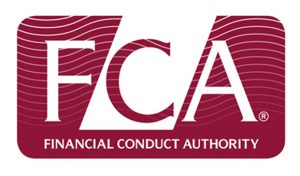The facts
£3.8bn The amount the government received in inheritance tax in the tax year 2014/15*
50% of people would plan to seek financial advice about estate planning**
£170,000 The amount the average inheritance tax bill is over***
What is inheritance tax?
Inheritance tax is a tax on the assets that belong to you when you die.
Assets include the total of everything owned by you and a share of anything owned jointly. Here are the most common assets:
- Personal property
- Securities
- Property/land
- Cash
- Shares
- Future inheritances
- Chattels
- Life insurance death benefits not in trust
What is the nil-rate band?
Individuals have a nil-rate band, if the value of your estate is worth less than the nil-rate band inheritance tax would not be payable. For the tax year 2016/17 the nil-rate band is £325,000 (£650,000 jointly). If your estate is worth more than this your executor may be liable to pay tax on anything above this threshold. The current rate of inheritance tax is 40%.
In addition to the above, the government is introducing a main residence nil rate band. This can have the effect of reducing your
potential tax bill further. Your financial adviser will be able to discuss how this could work for your own personal circumstance.
Reduce your inheritance tax
There are a range of options that help reduce the potential tax liability on your death. Investing a little time now means you
could rest easy, knowing that the people you want to leave your possessions and wealth to will not be faced with an unexpected bill to pay on your death.
We cover some of the options here. However, speak to your financial adviser who will be able to discuss the options that are right for your own personal circumstance.
Make a Will and keep it up to date
The first step to estate planning is to make a Will, if you’ve not made one already. Without a Will your estate will be subject to intestacy rules which could mean that the things you leave behind don’t go to the people you would have chosen. Once you have made your Will make sure you keep it up to date as your circumstances may change over time.
Exemptions
There are a number of exemptions that could be used to immediately reduce the value of your estate. If used correctly they are the most efficient way to reduce any inheritance tax bill.
Annual exemption allowance – you can gift up to £3,000 each year. Where total gifts in a year fall short of this allowance, the balance can be carried over to the following year and added to that year’s allowance.
Spouse exemption – it means that for most married couples they can ensure no inheritance tax is payable by arranging, through a Will, that on first death all the deceased spouse’s assets pass to the surviving spouse.
- Wedding gift/civil partnership ceremony gifts
- Parents up to £5,000
- Grandparents up to £2,500
- Anyone else up to £1,000
- Small gifts
- Up to £250 to as many individuals as you like per tax year.
- Charity
- Gift at least 10% of the value of your net estate in your Will and
reduce the amount of inheritance tax paid to 36%.
Gifts
If you can afford to gift some of the assets you own it may be possible to reduce the size of your estate, which could reduce your potential inheritance tax bill.
Normal expenditure
Regular gifts made from surplus income can be exempt.
Trusts
A trust is a legal arrangement where a person (trustee) holds assets for the good of one or more benefi ciaries. Trusts are complicated and must be set up carefully. You should speak to your financial adviser, who will be able to advice on what trust, if any, would be best for your needs.
Summary
Hopefully you now know a little more about how to minimise your potential inheritance tax liability. And if you feel prompted to reduce it, speak to your financial adviser who will be able to discuss your needs and the options available to you. Remember, once you have your plans in place, you should review them regularly to make sure they remain right for you. Please get in touch to discuss all the options




